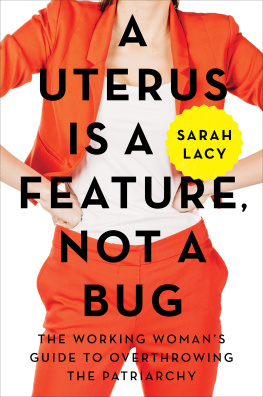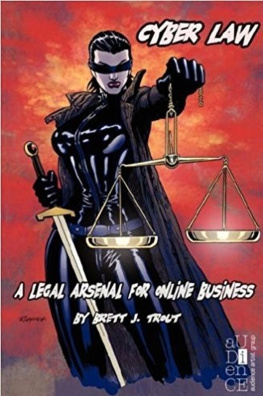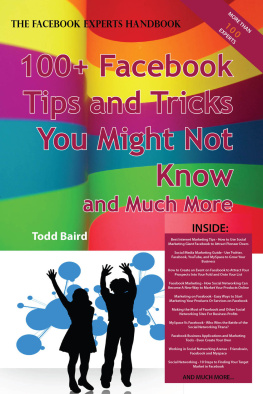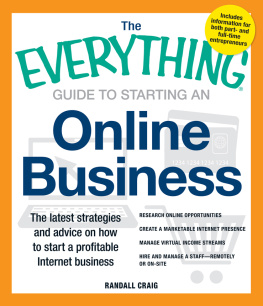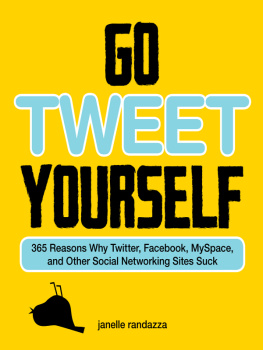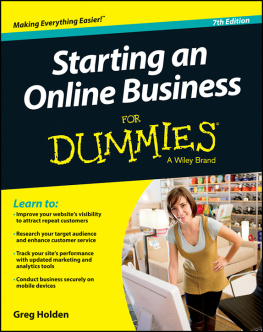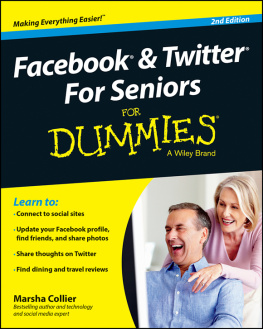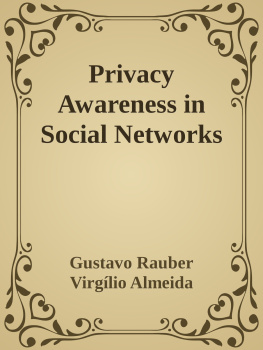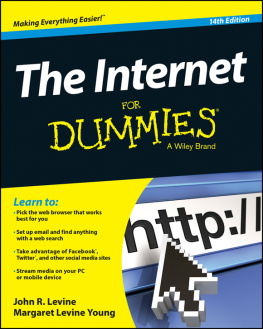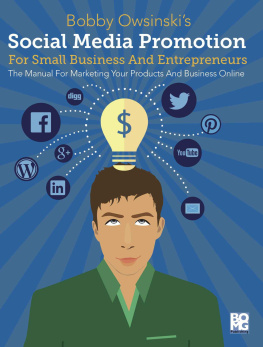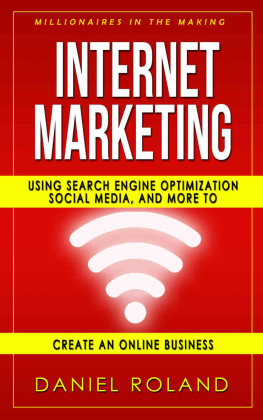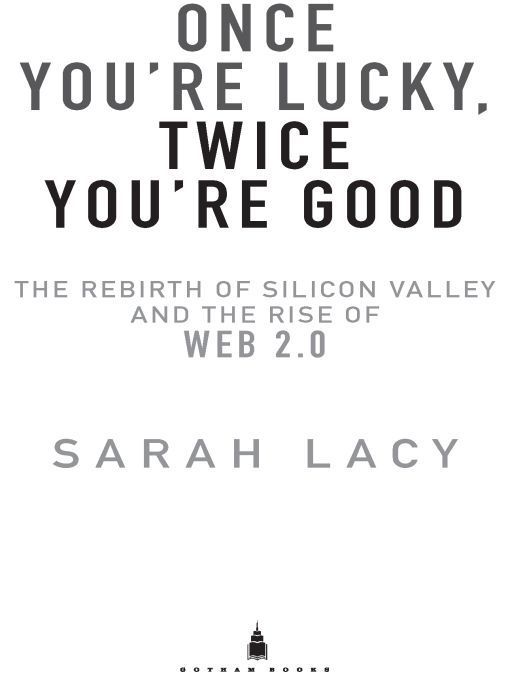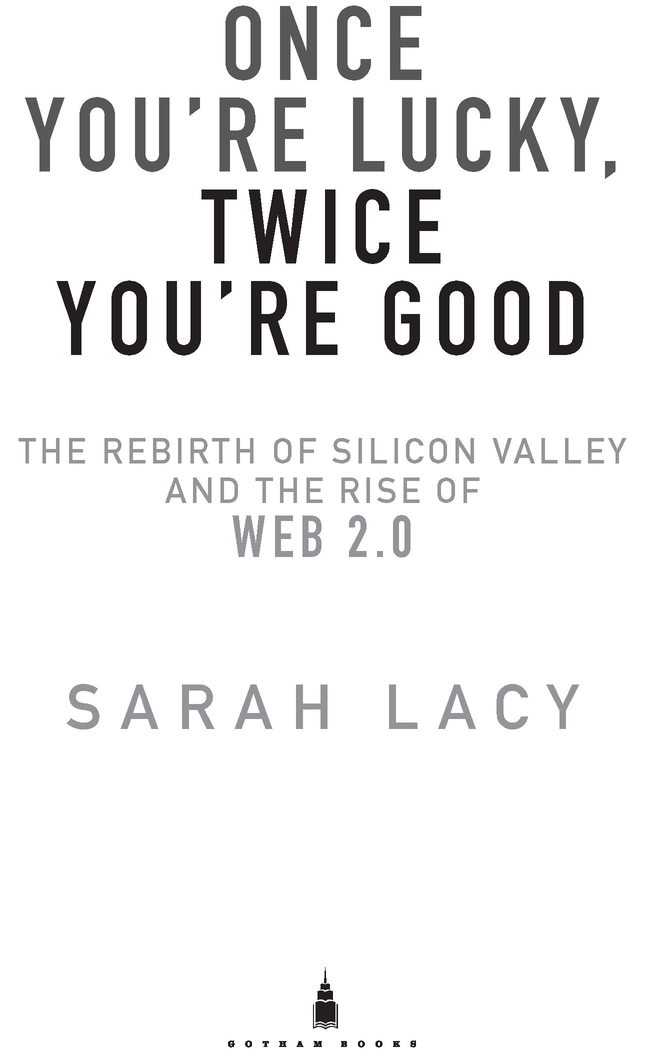Table of Contents
For Geoff, who knew Id do this before I did
and always believed in me
PROLOGUE
Its October 10, 2006, a sunny, if blustery, Northern California day. Chad Hurley and Steve Chen are outside the Google headquarters giggling in front of a video camera. Theyre clearly unscripted.
The two kings have gotten together, Chad ad-libs awkwardly before Steve starts laughing at him, backing away from the camera and doubling over in the parking lot. Two kings? Where did that come from?
Chad hams it up more, channeling the current Burger King marketing slogan with mock seriousness: The two kings have gotten together, the king of search and the king of video. Were going to have it our way.
More giggles all around. And then cut.
Youd be giddy too. Google had just bought Chad and Steves eleven-month-old video-sharing company YouTube for $1.65 billion. It meant they were now worth an additional $300 million each. And they were no longer on their own, trying to solve those pesky issues like copyright infringement and how to make money. They had the mighty $195 billion Google juggernaut behind them. But Chad and Steve werent the only ones reeling from the news. As the two shot the video to be posted onwhat else?YouTube, shock waves were spreading through the fifty-mile stretch known as Silicon Valley.
Just a few miles north of Chad and Steves exuberant video shoot, Mark Zuckerberg, the twenty-three-year-old founder of social networking site Facebook, was relieved. Suddenly the $1 billion Yahoo! had offered his company a month or so earlier didnt seem so crazy. Better yet, Zuck didnt seem so crazy to turn it down, despite the objections of some of his investors and a good number of employees with stock options.
Some 350 miles south in Los Angeles, Tom Anderson, Chris DeWolfe, and their investors were likely feeling anything but relief. The YouTube deal was an unwelcome confirmation: At $580 million, theyd definitely sold MySpace on the cheap a year earlier. MySpace was now one of the biggest sites on the Web. How big? Some 60 percent of YouTubes streaming videos were being watched from peoples MySpace pages. Chad and Steves business had been built on top of MySpaces success and sold for nearly three times as much. That had to hurt.
Others, toiling away in nondescript offices up and down Highways 101 and 280, groaned, Here we go again. Thirteen years ago Netscapean eighteen-month-old company with no profits or business model to speak ofhad debuted on the NASDAQ Stock Exchange and got the biggest first-day pop in stock price ever. It was the opening of the floodgates: In the next five years more than a thousand high-tech start-ups would go public, raising $66 billion a phenomenon that could end only in a fierce crash.
The fear was palpable: Was YouTube the new Netscape? Concern had already been building in certain corners of Silicon Valley and pockets of the business world at large, growing with every report mentioning eyeballsan industry term for the raw number of people who look at a Web siteand the reappearance of young, jeans-wearing idealists aiming to upend industries with the Web. Theyd lived through the bursting of the first Web bubble, some just barely, and no one wanted to go through it again.
And the impact on the other Chads and Steves out there? Those other young guys (and perhaps a woman or two) in jeans and Pumas who had quietly spent the last few years of their lives building what they believed would be the next big Web thing? They too felt a mix of emotions on October 10, 2006, swinging between hope and fear, giddiness and wariness. Believing in the Webs innate ability to transform any industry it touched versus hedging and cashing out early while they could. Making sure they didnt look like foolsagain. All at once, these twenty- and thirtysomethings feared that YouTube was and wasnt the next Netscape.
Still, even with all the fear and doubt taken into account, You-Tubes payday couldnt help but make these would-be Web moguls feel vindicated. Even if the same destiny didnt await them, it was a sign that theyd been right to believe the Net wasnt dead back in 2002, 2003, and 2004 when they started experimenting, at a time when no one was building cool new Web sites. Maybe fundamental changes like proven Internet business models, dramatically lower costs of doing business, and the now billion-person-strong Web audience could make things truly different this time. Maybe they hadnt been so crazy after all.
Now that YouTube was part of Google, the opportunistic among these entrepreneurs saw an opening: Who would be the next it start-up? The default answer seemed to be Facebookparticularly once word leaked of Yahoo!s rejected $1 billion entreaty. But entrepreneurs are optimists by definition, and others werent ready to cede the title of YouTube of 2007 to Zuckerberg.
Reid Hoffmans site LinkedIn was hitting critical mass after a four-year slog of trying to build a MySpace for businesspeople. Whats more, it was one of the few sites that actually charged people to use it. Thanks to revenues from premium services like job listings, LinkedIn was the lone profitable social networking venture out there. By the fall of 2006, its investors were already valuing it at over $250 million.
Another contender was Six Apart, founded in 2002 by then twenty-four-year-olds Ben and Mena Trott in 2003. It was one of the very few companies to find a business model in blogging. By 2006, more than 50 percent of people online were reading blogs self-published online diaries and newslettersand theyd proven a disruptive force in politics and business. Six Apart pioneered slick, easy-to-use blogging software; by 2006 nearly any company using blogs for in-house communications bought its software from Six Apart, as did nearly every professional blogger or old-school media outlet looking to get in on the trend. Pundits were starting to describe them as an initial public offering (IPO) candidate in 2007 maybe the first of the Web 2.0 wave. But an acquisition was starting to look just as likely, as it became more and more apparent that blogging was a big part of journalisms future and that Six Apart more than anyone owned and defined professional blogging.
Smaller, but with rabid followings, were Digg and Yelp. Digg, founded by bubble veteran Jay Adelson and Valley party boy Kevin Rose, was a very different kind of news site. The idea behind it was that hundreds of thousands of everyday folks would scour the Web for the best stories and submit them to Digg.com. Think of it as citizen journalism for lazy people who didnt want to write their own blogs, just find stories and mark them as good. Diggs reach and revenues were far smaller than LinkedIn or Six Apart, but on just a couple of million in venture capital it had emerged as a force big media couldnt ignore. Getting a story on Diggs front page would bring a torrent of trafficand highly desirable young traffic at that. A few years earlier, tech news site CNET balked at adding Digg This buttons to the end of their stories. "We dont do things like that, they condescendingly told Kevin. By 2006, they were begging for buttonsalong with The New York Times, The Washington Post, and others.
Similarly, Yelp had become a force among the young and hip in San Francisco. Founded by Jeremy Stoppelman and Russel Simmons, friends of Chad Hurley and Steve Chen from the days when all four worked at PayPal, the site was part Yellow Pages, part MySpace, and part Citysearch. Positive or negative buzz on Yelp was soon affecting local businesses so much that they were hungry to advertise on the site and make their own pitch to the influential hipsters with disposable cash. By late 2006, Yelp was in a handful of cities and people were slapping bright red People on Yelp Love Us stickers on their storefront windows.


